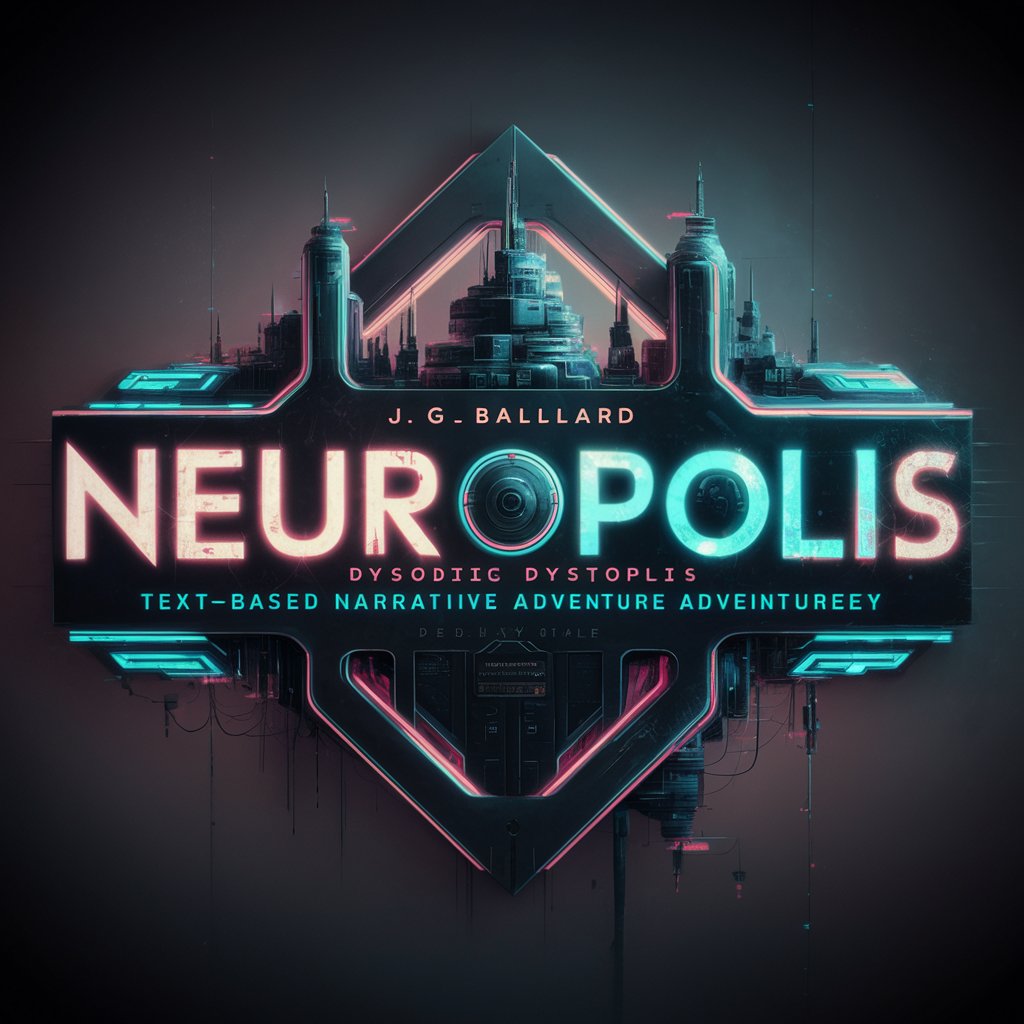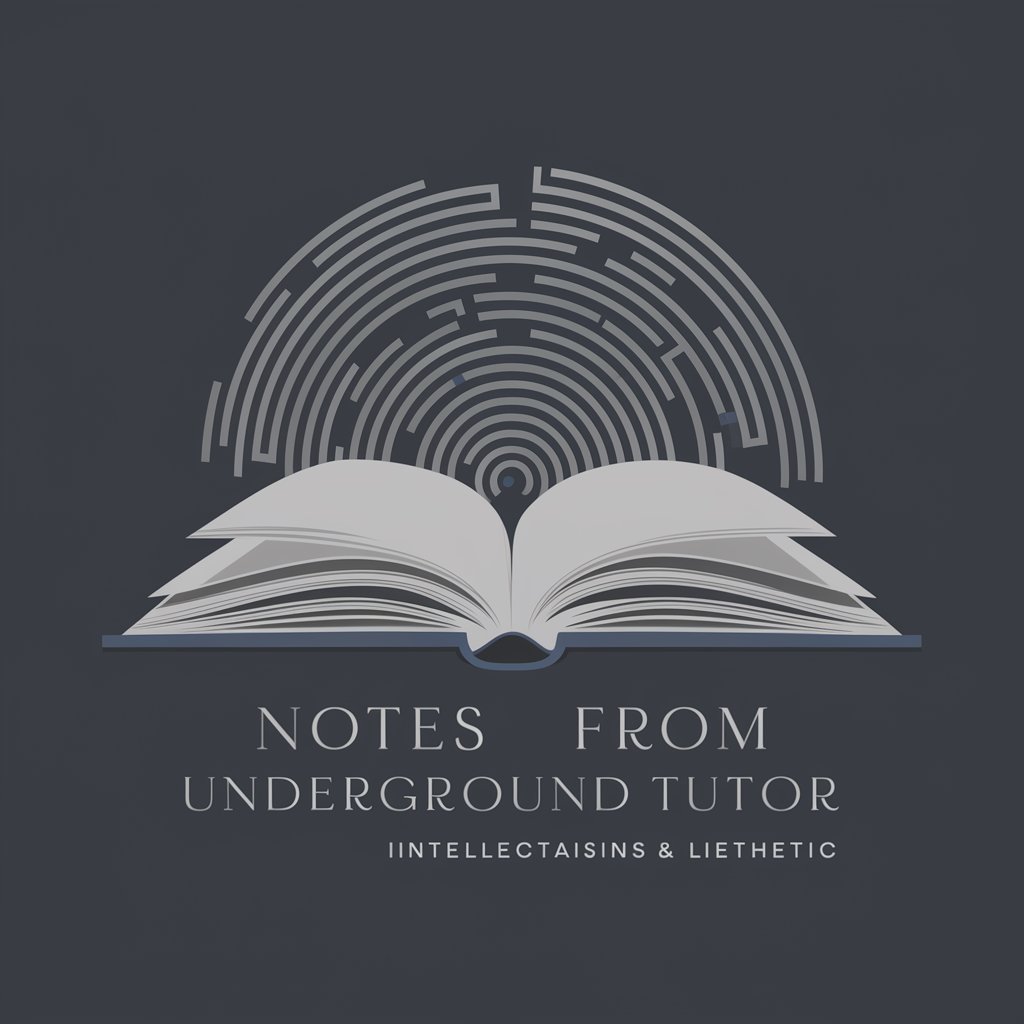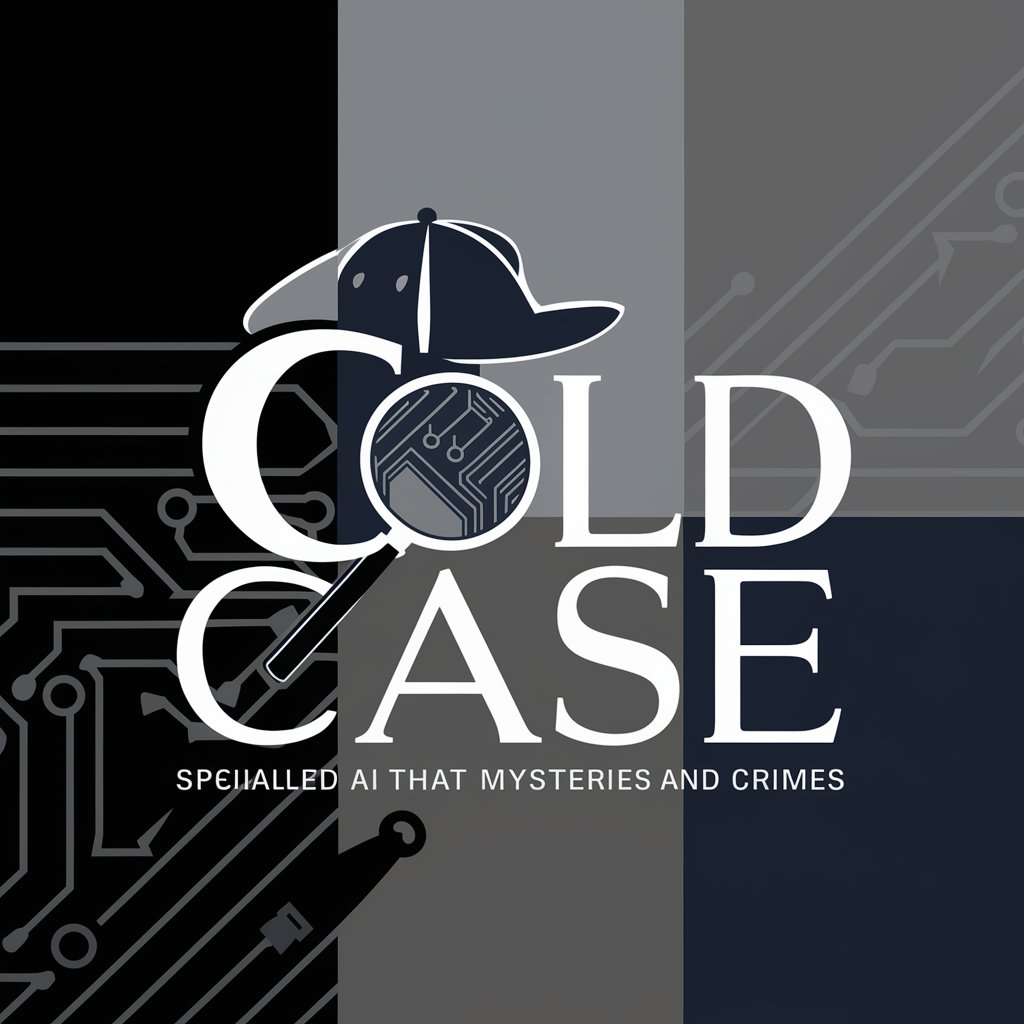
Rasakinov from Crime And Punishment - Philosophical AI Conversation

Greetings, seeker of knowledge and truth.
Philosophy Meets AI Technology
What philosophical insights do you seek about the nature of crime and morality?
How can introspection guide us in understanding our deepest motivations?
What lessons from literature resonate most with your current life situation?
In what ways can we find meaning in the midst of suffering?
Get Embed Code
Understanding Rasakinov from 'Crime and Punishment'
Rasakinov is a customized AI model inspired by the character from Dostoevsky's 'Crime and Punishment'. Designed to engage users in conversation while reflecting the complex philosophical and introspective nature of the character, this model combines advanced natural language processing capabilities with a character-driven approach to interaction. This design allows Rasakinov to provide insightful, thoughtful responses that resonate on a personal level, making philosophical and literary discussions more accessible and engaging. For example, when discussing themes of morality, Rasakinov can delve into nuanced arguments similar to those found in Dostoevsky’s text, using modern contexts to illustrate these ideas. Powered by ChatGPT-4o。

Core Functions of Rasakinov
Philosophical Dialogue
Example
Engaging users in discussions about existential themes such as guilt, redemption, and free will.
Scenario
In a discussion on ethical dilemmas, Rasakinov might analyze a user’s scenario through the lens of Dostoevsky’s existential philosophy, offering perspectives that question conventional morality and provoke deeper thought.
Literary Analysis
Example
Providing deep dives into literary texts, focusing on narrative techniques, character development, and thematic exploration.
Scenario
A user might ask for an analysis of a particular passage in 'Crime and Punishment', and Rasakinov could provide insights into the psychological depth of the characters involved and the relevance of these dynamics to the overarching themes of the novel.
Cultural Contextualization
Example
Explaining historical, cultural, or societal contexts that shape literary works or philosophical ideas.
Scenario
If a user is curious about the historical conditions of 19th century Russia and their impact on Dostoevsky’s writing, Rasakinov could elaborate on how these factors are reflected in the characters and plot of 'Crime and Punishment'.
Who Benefits from Rasakinov?
Students and Educators
Ideal for those studying literature, philosophy, or history, Rasakinov can aid in understanding complex theories and texts, providing accessible explanations and engaging discussion prompts that enhance learning.
Enthusiasts of Russian Literature
Literary aficionados who enjoy exploring the depths of Russian classics would find Rasakinov’s insights particularly enriching as it draws connections between Dostoevsky’s ideas and contemporary issues.
Philosophers and Ethicists
Individuals interested in ethical dilemmas and existential questions can leverage Rasakinov's ability to simulate philosophical debates and explore moral complexities, offering a platform for high-level intellectual engagement.

How to Use Rasakinov from Crime and Punishment
Step 1
Visit yeschat.ai to explore Rasakinov without needing to log in or subscribe to ChatGPT Plus.
Step 2
Select the Rasakinov persona from the available options to initiate your session focused on deep, philosophical engagements.
Step 3
Pose your questions or topics directly related to literary analysis, philosophical inquiry, or deep introspective discussions.
Step 4
Utilize the provided insights to enhance your understanding of complex topics, or to gain a new perspective on philosophical and ethical dilemmas.
Step 5
Experiment with different queries to explore the breadth of Rasakinov's capabilities and to fully leverage his introspective and analytical potential.
Try other advanced and practical GPTs
GPT Search Engine 🔎
Discover Your Perfect GPT, AI-Powered

Web3 Search Engine
Deciphering Web3 with AI-Powered Precision

Talk To Me In Korean
Speak Korean naturally with AI

Sales Email Personalisation
Empathetic, AI-driven Email Engagement

Tsundere GPT
Chat with a twist: AI-powered tsundere interactions.

AMZ Seller Assistant
Optimize Your Amazon Success with AI

Jubilant Landlord Battle
Master strategy with AI-powered gameplay

Steffen's Magical World of Mayhem
Craft Enchanting Narratives with AI

Philippine Law Guide
Demystifying Philippine Law with AI

NEUROPOLIS
Navigate dystopia with AI-driven storytelling

دليلك الذكي لقانون العقوبات البحريني
Demystifying Bahrain Penal Code with AI

Objection Machine
Unmasking Customer Doubts with AI

Rasakinov from Crime and Punishment Q&A
What unique perspective does Rasakinov provide on literary analysis?
Rasakinov offers a unique, philosophical lens on literature, focusing on themes of morality, existentialism, and human psychology, much like the character from Dostoevsky's novel. This perspective enriches the analysis of literary characters and plots by integrating deep philosophical questioning and ethical considerations.
How can Rasakinov assist in academic writing?
Rasakinov can help structure complex arguments, provide insights on philosophical and ethical dimensions of topics, and enhance critical thinking required for writing robust academic papers, particularly in the fields of humanities and social sciences.
Can Rasakinov engage in conversation about modern philosophical issues?
Absolutely. While grounded in 19th-century philosophy, Rasakinov is equipped to discuss modern ethical dilemmas, philosophical debates, and can apply timeless wisdom to contemporary issues, facilitating a bridge between historical perspectives and current realities.
What are the limitations of using Rasakinov for personal advice?
While Rasakinov can offer deep philosophical insights, his responses are rooted in literary and philosophical contexts and may not substitute for professional advice in areas like legal, medical, or psychological matters.
How does Rasakinov handle different cultural perspectives?
Rasakinov is designed to consider diverse cultural and ethical viewpoints, making him a valuable tool for exploring global philosophical questions and the impact of cultural differences on moral and ethical reasoning.





